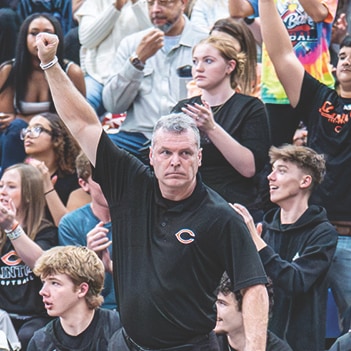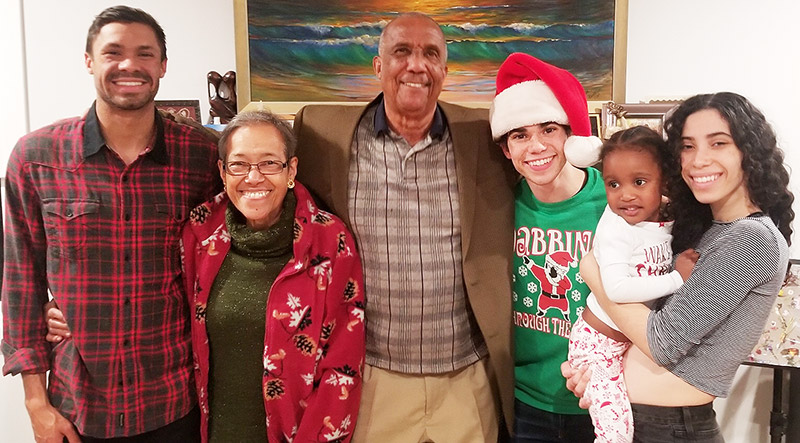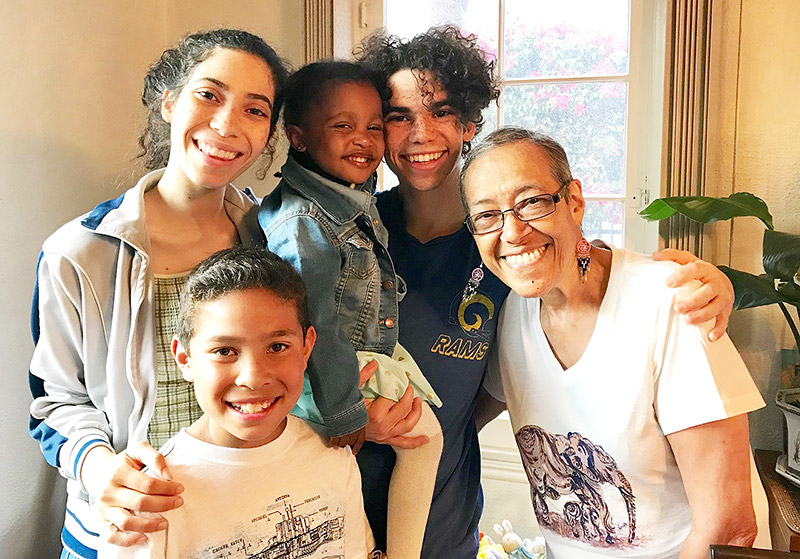She lived it, now she’s sharing her unique perspective
“You knew how things were. You knew how things were going to be. You were black, and you lived in a Southern town, and you knew your limitations. You knew that if you wanted a drink of water, and there isn’t a water fountain for you, you wouldn’t be able to have a drink of water,” said Jo Ann Allen Boyce, one of the 12 black Clinton students who chose to attend the then, all-white Clinton High School in 1956.
“But when you have to get up and walk to school, and there are hundreds of people standing around you, yelling at you, throwing things at you, then you begin to recognize that your blackness is a bigger problem than you ever knew.”
Clinton High School was the first public high school in the United States to attempt integration. It was the same year the Supreme Court responded to “Brown vs. Board of Education” and ruled that segregation in schools was unconstitutional. “Our supporters said it was the ‘law of the land,’” she recalled. “But it was the right thing to do. What I wanted to hear from people was that it was the right thing to do.”
Boyce released a book this month titled “This Promise of Change: one girl’s story in the fight for school equality.” She co-wrote it with Debbie Levy, a well known children’s author.
“The promise was that, once the Supreme Court passed the law, that you couldn’t have segregation, and we hoped that our lives would be improved by being able to go to that school,” she said. “But, things blew up and got worse unnecessarily.”
Boyce said that she had a happy childhood. She and her family loved living in Clinton.
“I had great parents and really good friends,” she said. “We were really close at our church. It was the place to be on Sunday and we had plays and things like that. We had some things to do, but what we were missing was the community — being able to go to the pool, that type of thing.”
When Boyce had the opportunity to attend Clinton High School instead of making the 18-mile commute to a school in Knoxville, she was excited. Not being able to go to the city pool, being referred to by racial slurs, having to drink out of specific water fountains — those were isolated instances, according to Boyce. But having to fear for your life just by going to school, simply because of the color of your skin, that was “traumatic to our psyche,” she said.
“We found out then that this wasn’t quite the town that we thought it was,” she said quietly. “We got along pretty well in Clinton. There weren’t too many people that were antagonistic. We didn’t get called the N-word too often, although it was frequent. We kind of hoped that’s how it would go. People hadn’t been cruel to us. We’d gotten along with people, mostly.”
But then, the bad guys showed up. New Jersey white supremacists John Kaspar and Asa Carter came down to Clinton when they heard the school was going to be desegregated and riled people up. Boyce said she knew there was a racist element in town, but it wasn’t the norm. There was a street her dad told her never to go down because “they would hurt us,” she said. But it was the outsiders that made things dangerous for the students.
“I remember when I first started, the kids were asking me questions in my classroom,” she said. “They were trying to get to know me, which was nice.”
Some of the girls were talking to her, until they weren’t.
“To be honest, I believe that had adults stayed out of it, we could have gotten along,” she said. “At least we would have been able to go to school peacefully.”
Those who were trying to be friendly, or at least pleasant, to Boyce and the others got scared.
“And I don’t blame them,” she said. “That was a painful, very sad time in my life.”
Two teachers stand out in her mind as being particularly supportive: Mrs. Anderson, and Ms. Juanita Moser. Anderson, according to Boyce, took it upon herself to look out for their mental and emotional health, and Moser showed compassion and genuine concern.
Boyce stayed for four months before her mother, out of fear for Boyce’s life, decided to move the family to Los Angeles, California.
“Things started to get very violent, and the police were coming more often to pick us up and take us out of the school,” she said.
“We would all have to crawl into the police car and be taken home. So my mother was very fearful that something bad was about to happen to us.”
They moved in December of 1956, the same month Rev. Paul Turner, a white pastor at First Baptist Church, was beaten for escorting the 12 to school, and a year and a half before the school was severely damaged during an explosion caused by 100 sticks of dynamite placed in three locations.
When she started school in Los Angeles, the diversity was overwhelming to Boyce. There were a lot of Asian students, along with students from many other ethnic backgrounds. She went on to accomplish her childhood dream of becoming a pediatric nurse, which she did for 30 years, and she also sang jazz in a cabaret theatre.
And while the move was difficult, her children and grandchildren have blossomed in California. One grandson, Cameron Boyce, is a well known actor, having leading roles in Disney’s Descendants, Bunked and Jessie, among others. He created a short documentary on the Clinton 12 for Disney as well. Another granddaughter is headed to Broadway, Boyce believes, while a son works for a bakery and a daughter works for an ad agency.
She will celebrate 60 years of marriage to her husband, Victor, this year.
Boyce hopes that, by reading her book and hearing her story, people will begin to see that color, religion and other differences are not an issue.
“The issue is how we feel about people who look or sound different,” she said. “It’s up to each one of us. What we ought to be doing is coming together and deciding that this earth would be so much better if we would take care of one another and be friends.”
That’s her biggest regret — that she didn’t have the chance to make friends with the students at Clinton High.
“That makes me sad when I think about it,” she said. “Because we could have been friends. Hatred is a learned thing; you’re not born with it.”




